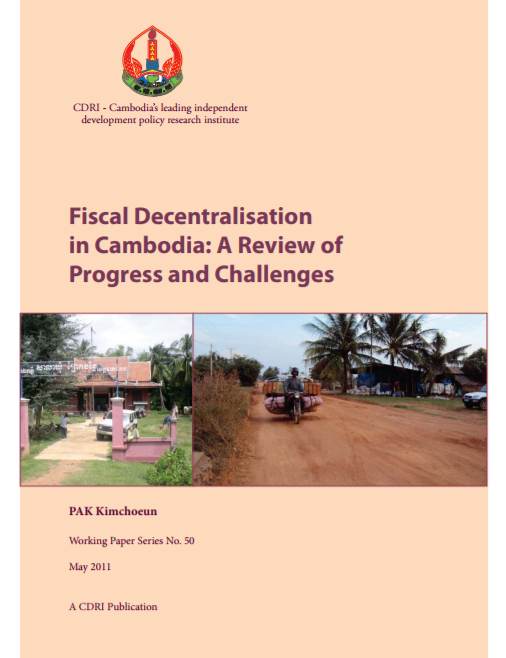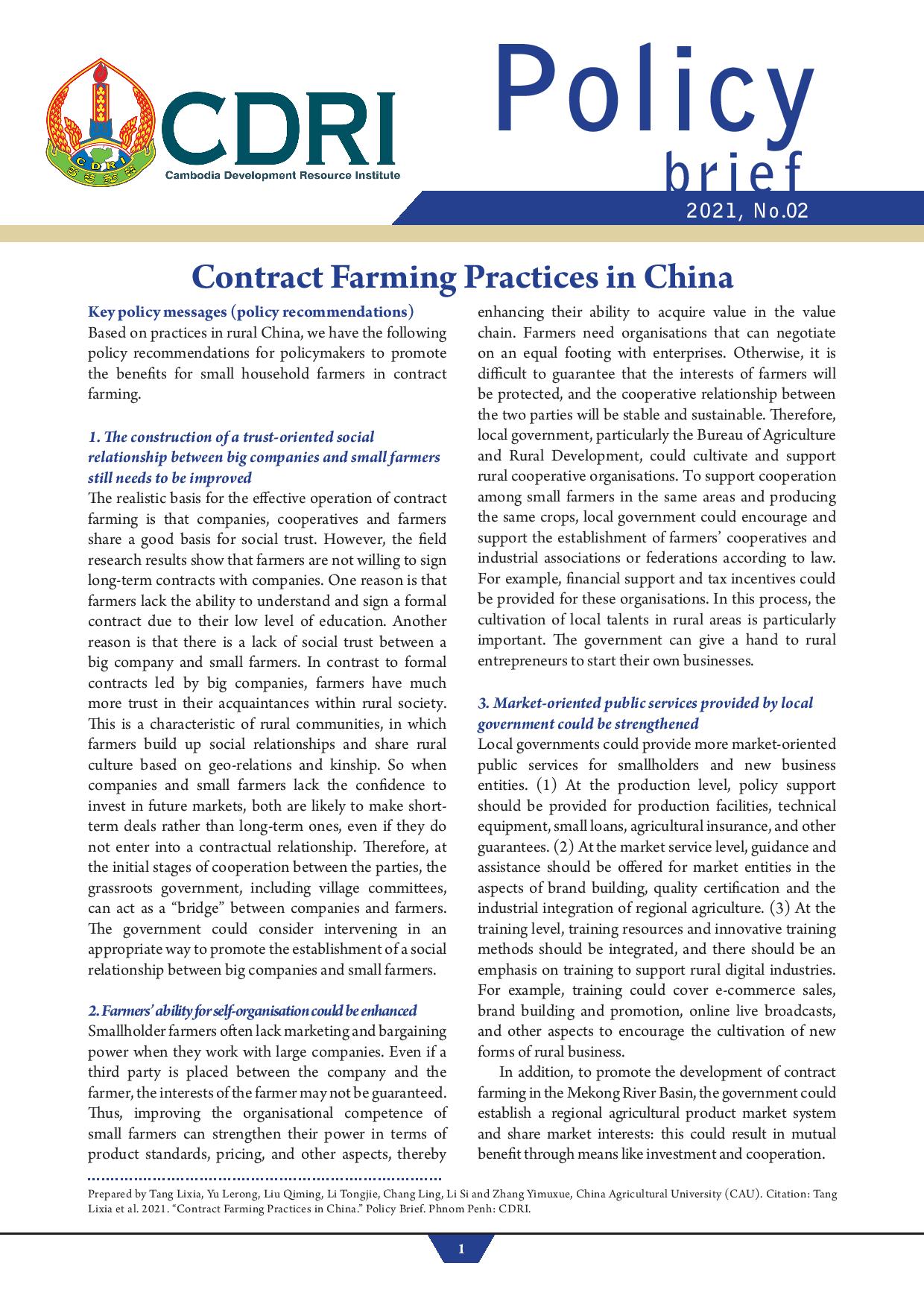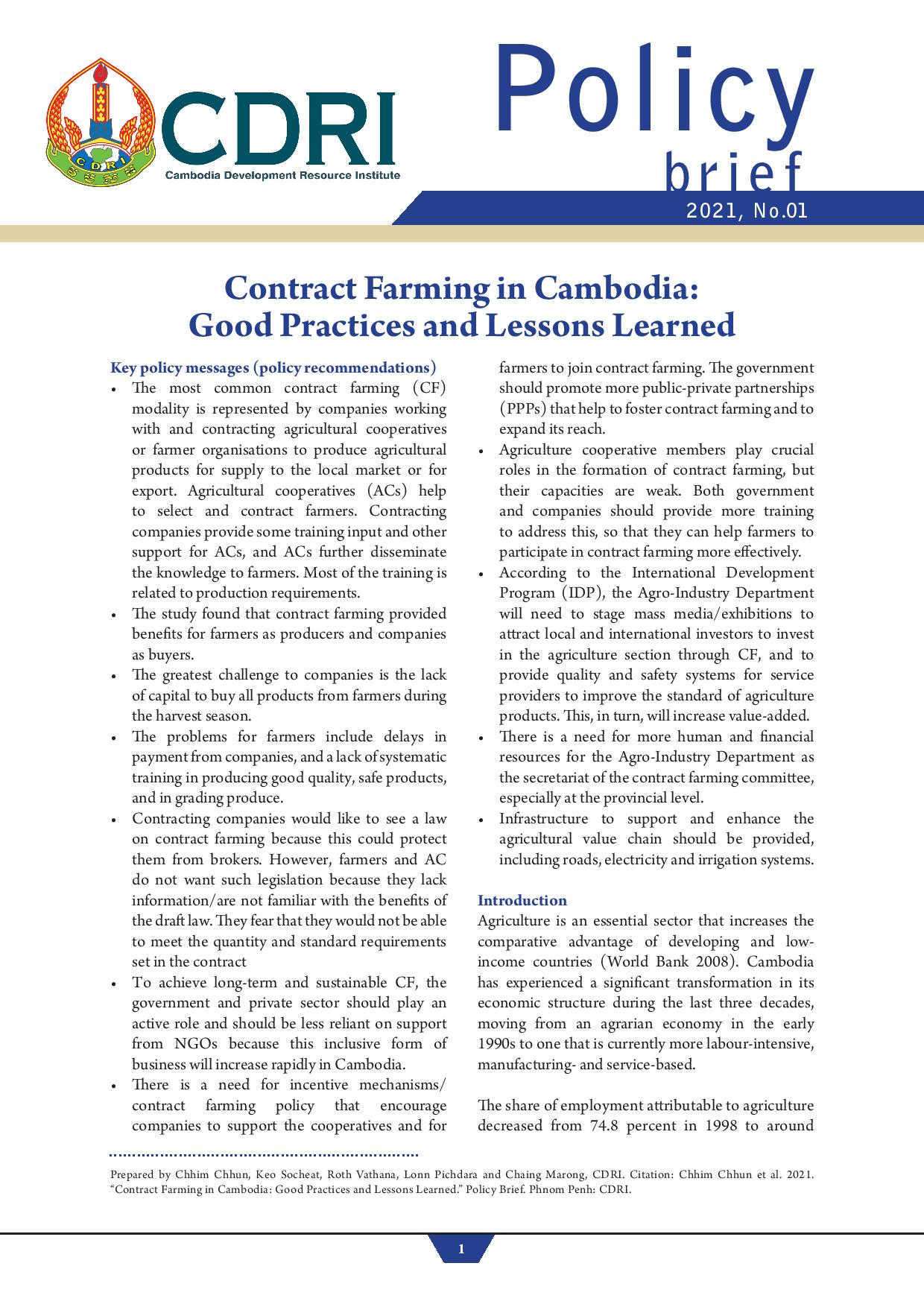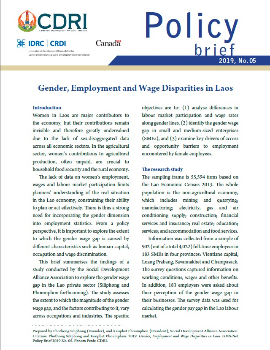
Fiscal Decentralisation in Cambodia: A Review of Progress and Challenges
Keyword: Fiscal decentralisation, public financial management, sub-national governance, service delivery reform, Organic Law implementation
Khmer PDF (12)
Abstract/Summary
To achieve
democratic development, Cambodia’s next step towards fiscal decentralisation
will focus on both institutional and service delivery reform at district level
so as to strengthen the capacity of the sub-national administration and better
link it to sectoral service delivery. To move forwards, fiscal decentralisation
needs to be comprehensive and well coordinated with other cross-cutting
reforms, especially the Public Financial Management Reform Programme, and
sectoral reforms. This does not mean that everything has to be done at the same
time, for doing so would overwhelm existing capacity and go against the more
gradual ‘learning by doing’ philosophy of Cambodia’s decentralisation. Being
comprehensive entails setting out the longer term vision, anticipating the
kinds of challenges that lie ahead and planning realistic and flexible
sequencing strategies.
Linking
decentralisation to sectoral policy is particularly challenging – especially
given the current centralised patronage-based process associated with sectoral
service delivery and state budget management. The challenges are compounded by
the parallel fragmented nature of donor support through numerous vertical
projects. Overcoming them requires that fiscal decentralisation in the future
should not be seen as mostly initiated and driven by the Ministry of the
Interior, but rather by the sectors themselves. That donors be involved and
supportive of decentralisation is no less important.
There are reasons
for both optimism and pessimism about the next step of fiscal decentralisation
under the Organic Law. On the one hand, successful experience with communes
since 2002 engenders the strong hope that the government will again prove its
adaptability and successfully navigate the reform. On the other hand, commune
reform has barely touched on the kinds of tasks expected in the next step,
namely functional assignment, revenue assignment, and more systematic
inter-governmental transfer. Some basic components and tasks, including
functional and revenue assignment, were hardly implemented under the commune
reform. Starting on these tasks will definitely run into resistance from
central agencies, a test that will prove how committed the government is to
fiscal decentralisation.



